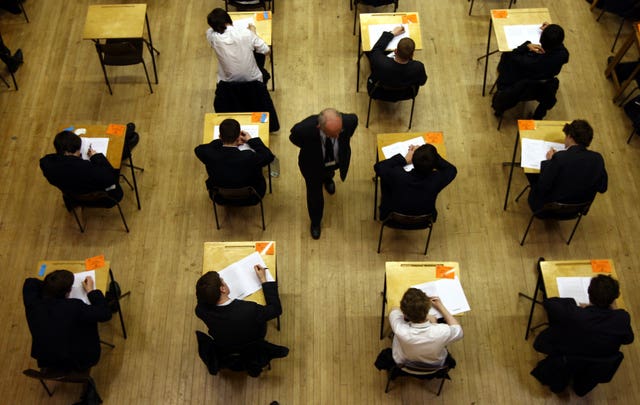Pupils could be blocked from taking out student loans if they fail maths and English GCSEs, under Government plans aimed at tightening controls on higher education.
The proposals, which are set to be published later this week before being put to consultation, would see the introduction of both student number controls and minimum entry requirements for some university applicants.
The Department for Education (DfE) said the measures are being considered in order to prevent pupils from being “pushed into higher education before they are ready” and to ensure “poor-quality, low-cost courses aren’t incentivised to grow uncontrollably”.
The plans will include a suggestion that students who do not get 2 Es at A level or equivalent or at least a Grade 4 pass in English and Maths at GCSE are barred from getting a student loan, a DfE spokesperson said.

About a third of pupils currently fail to get a Grade 4 – the equivalent to a C or pass under the previous system – in English and maths.
The planned overhaul, first reported in the Daily Telegraph, comes as the number of school-leavers opting to pursue higher education continues to rise, according to new figures.
Data from the Ucas university admissions service shows 320,000 sixth formers have applied for university places so far, compared with 306,000 in 2021.
The number of poorer pupils pursuing higher education has also increased, with 28% of 18-year-olds from the most disadvantaged areas applying this autumn compared with just under 18% in 2013.
The DfE has said that while numbers of applicants are increasing, “not all students receive the same high quality of teaching” and many become saddled with debt for courses with poor job prospects.
A DfE spokesperson said in a statement: “Our universities are a great British success story. They are powerhouses of innovation and are playing a key part in revolutionising the skills system, helping making lifelong learning possible with more flexibility and technical training.
“But we need to ensure that we are creating opportunities that will not only open doors but will develop the talent our country needs to prosper now and in the future.
“Higher education is an investment and we need to ensure that graduates are being rewarded for the money, time and effort they put into their studies with an educational experience and jobs that match their skills and help contribute to the economy.”




Comments: Our rules
We want our comments to be a lively and valuable part of our community - a place where readers can debate and engage with the most important local issues. The ability to comment on our stories is a privilege, not a right, however, and that privilege may be withdrawn if it is abused or misused.
Please report any comments that break our rules.
Read the rules here